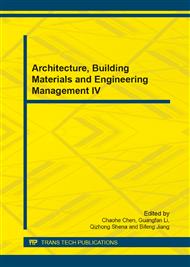p.2647
p.2653
p.2659
p.2664
p.2668
p.2672
p.2676
p.2681
p.2685
The Effect of Challenge-Hindrance Stressor on Engineering Design Innovation Behavior — The Mediating Role of Intrinsic Motivation
Abstract:
This paper explores the differential effects of work stressors on employee innovation behavior, the mediating role of intrinsic motivation by data collected from 282 engineering design staff under the situations of high strength construction project tasks and heavy stress through questionnaires. Empirical study results show that the challenge stressor has significant positive prediction function on individual innovation behavior, hindrance stressor has significant negative influence on individual innovation behavior; intrinsic motivation has partial mediating role between two types of stressors and individual innovation behavior.
Info:
Periodical:
Pages:
2668-2671
Citation:
Online since:
July 2014
Price:
Сopyright:
© 2014 Trans Tech Publications Ltd. All Rights Reserved
Share:
Citation:


